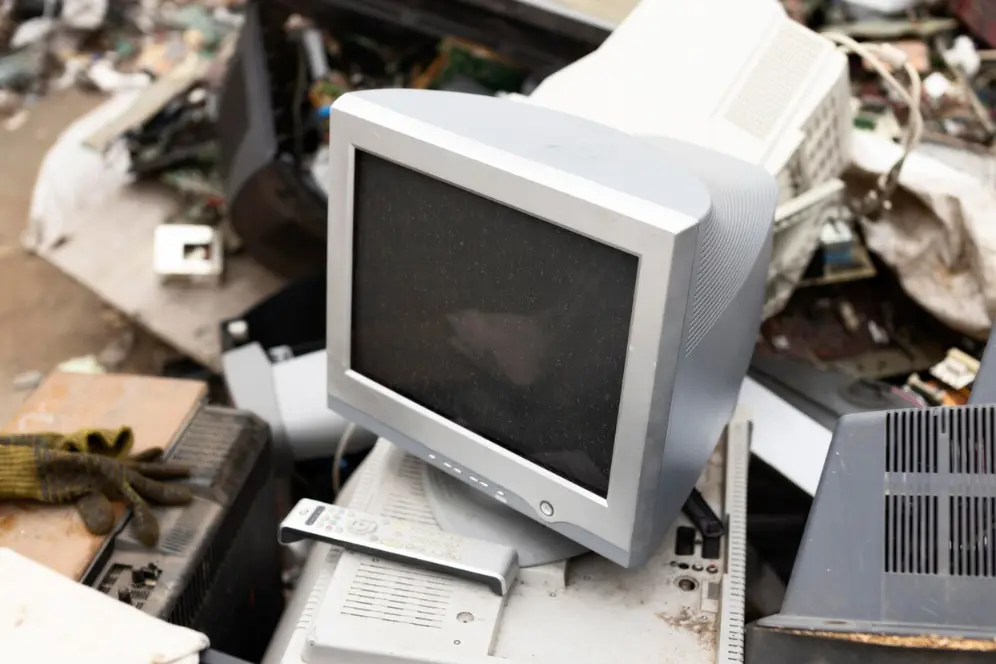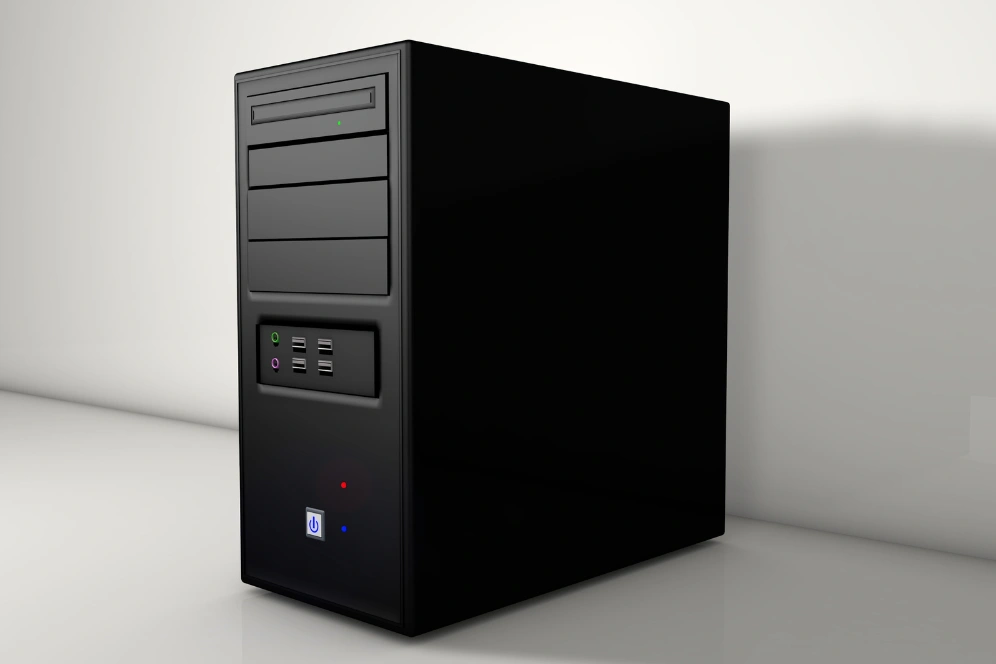British businesses collectively hold an estimated £3.2 billion worth of unused IT equipment in storage facilities and warehouses across the UK. This staggering figure represents thousands of servers, computers, networking equipment, and other technology assets that could generate immediate cash flow instead of depreciating in storage.
The decision to sell IT hardware rather than store it has become increasingly critical as technology lifecycles shorten and storage costs continue rising. With commercial storage rates averaging £8-15 per square foot annually across UK cities, the hidden costs of hoarding outdated equipment often exceed the potential future value of these assets.
Storing unused IT equipment creates multiple financial drains that many businesses overlook when calculating their technology asset management strategies. Beyond obvious rental costs, stored equipment requires climate control, security measures, and regular maintenance to prevent deterioration.


Technology equipment loses value at accelerated rates compared to other business assets. The IT Asset Disposition Association reports that computer equipment typically depreciates 15-25% annually, while networking equipment can lose 20-30% of its value each year.
The UK IT resale market has grown significantly, reaching £2.8 billion in annual transactions according to the Technology Reseller Association. This growth creates numerous opportunities for businesses to sell IT hardware for cash in the UK at competitive prices.
Enterprise Equipment Demand: Small and medium-sized businesses actively seek quality used enterprise equipment to reduce capital expenditure. This demand keeps prices stable for well-maintained servers and networking equipment.
International Export Market: The UK serves as a major hub for IT equipment exports to developing markets. Used computer equipment finds ready buyers in Africa, Eastern Europe, and Asia, where price sensitivity drives demand for functional secondhand technology.
Component Recovery Value: Even non-functional equipment retains value through component recovery and material recycling. Precious metals in circuit boards, including gold, silver, and palladium, maintain consistent value regardless of equipment functionality.
Extended storage of IT equipment creates significant data security risks that many organizations underestimate. Hard drives and memory modules can retain sensitive information even after standard deletion procedures, creating potential compliance violations and data breach risks.
Data Retention Concerns: Stored hard drives may contain recoverable data fragments that pose security risks. Professional data destruction costs £15-30 per drive, adding to overall storage expenses while selling equipment often includes certified data wiping services.
Physical Security Vulnerabilities: Storage facilities face theft risks, particularly for high-value technology equipment. The National Crime Agency reports that IT equipment theft from storage facilities increased 23% between 2022-2024, highlighting growing security concerns.
Compliance Requirements: GDPR and other data protection regulations require secure handling of equipment containing personal data. Long-term storage complicates compliance documentation and increases potential liability exposure.
Selling unused IT equipment supports environmental sustainability goals while generating positive corporate social responsibility outcomes. The UK produces approximately 1.5 million tonnes of electronic waste annually, making responsible IT asset disposition increasingly important.
Carbon Footprint Reduction: Extending equipment lifespan through resale reduces manufacturing demand for new devices. The Carbon Trust estimates that reusing a desktop computer for one additional year prevents 300kg of CO2 emissions equivalent.
Circular Economy Participation: The UK government’s Circular Economy Strategy encourages businesses to maximize asset utilization through resale and refurbishment programs. Companies participating in these initiatives often qualify for environmental certification benefits.
Waste Reduction Impact: Selling functional IT equipment prevents premature entry into waste streams. The average desktop computer contains 2-8kg of recyclable materials, but immediate resale provides greater environmental benefit than recycling.
Converting stored IT assets to cash provides immediate financial benefits that compound over time through alternative investment opportunities. The average business can generate 8-15% returns on cash investments compared to negative returns from depreciating stored equipment.
Cash Flow Improvement: Immediate equipment sales provide working capital for business operations or technology upgrades. This liquidity often proves more valuable than potential future sale proceeds from stored equipment.
Tax Deduction Opportunities: Equipment sales may qualify for capital allowances or loss deductions that reduce overall tax liability. Professional tax advice can maximize these benefits when timing equipment disposals.
Reduced Administrative Burden: Active equipment sales eliminate ongoing storage management responsibilities, including inventory tracking, insurance renewals, and facility coordination.
IT equipment values fluctuate based on market conditions, technology refresh cycles, and economic factors. Understanding these patterns helps optimize sale timing for maximum financial return.
Technology Refresh Cycles: Major manufacturers typically release new product lines every 2-3 years, creating predictable depreciation patterns for existing equipment. Selling before new generation launches maximizes recovery value.
Economic Impact Factors: Economic downturns increase demand for used IT equipment as businesses defer new purchases. The COVID-19 pandemic demonstrated how market conditions can temporarily increase used equipment values.
Seasonal Demand Patterns: IT equipment sales peak during January-March as businesses implement new fiscal year budgets and again in September-October for academic year preparations.
Specialized ITAD companies provide comprehensive services that maximize recovery value while ensuring secure data handling. These services often generate higher returns than individual sale attempts.
Certified Data Destruction: Professional ITAD providers offer certified data wiping and hard drive destruction services that ensure compliance with security regulations while maximizing equipment value.
Market Access Advantages: Established ITAD companies maintain relationships with multiple buyer channels, including refurbishment centers, export markets, and component recovery facilities.
Volume Processing Benefits: Professional services can handle large equipment volumes efficiently, reducing administrative burden while optimizing pricing through bulk processing agreements.
UK businesses must comply with various regulations when disposing of IT equipment, including WEEE directives, data protection laws, and export licensing requirements.
WEEE Compliance: The Waste Electrical and Electronic Equipment Directive requires proper handling of electronic waste through licensed operators. Selling equipment through approved channels ensures regulatory compliance.
Export Documentation: IT equipment exports may require specific licenses or documentation, particularly for encryption-capable devices. Professional ITAD services manage these requirements automatically.
Chain of Custody Requirements: Some industries require documented equipment disposition processes for audit purposes. Professional sales services provide necessary documentation and certificates.
The financial analysis consistently favors immediate sale over long-term storage for most IT equipment scenarios. When storage costs, depreciation rates, and opportunity costs are properly calculated, holding equipment rarely generates positive returns.
Break-even Analysis: Equipment must appreciate faster than combined storage costs and depreciation rates to justify retention. This scenario rarely occurs with standard business IT equipment.
Risk Assessment: Storage risks including theft, damage, and compliance violations often exceed potential future sale premiums, making immediate sale the lower-risk option.
The evidence overwhelmingly supports selling IT equipment promptly rather than storing it indefinitely. Between depreciation losses, storage expenses, and missed opportunity costs, holding unused technology assets rarely generates positive returns for businesses.
When you sell IT hardware for cash UK, you convert depreciating assets into working capital while eliminating ongoing storage responsibilities and reducing security risks. This approach aligns with sound financial management principles while supporting environmental sustainability goals.